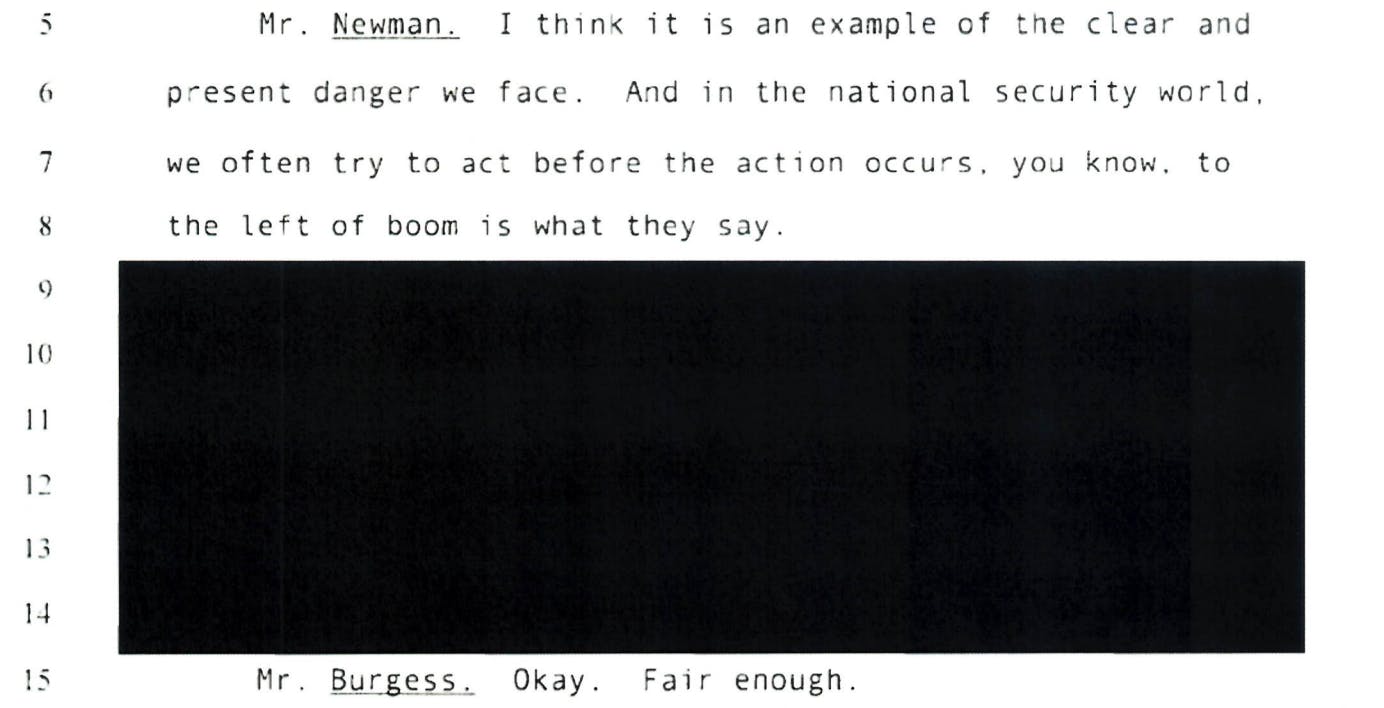Here’s the transcript of the secret briefing that kicked off the TikTok law
It’s hard for Americans — or American politicians — to agree on much of anything these days.
But, following a classified briefing on the potential national security threat posed by TikTok on March 7, the House Energy and Commerce Committee voted unanimously to advance an incredibly contentious legislation that posed a threat to TikTok, one of the most popular forms of communication in the country. (Even after TikTok sent a urgent sounding push alert to its users' phones, directing them to call Congress and generating a flood of calls to Representatives.)
It was a remarkably rapid, unified and some might say courageous decision in a legislative body not known for such things.
The unanimous committee vote gave a jolt of momentum to the bill which passed the next week in a landslide vote by the full house. The Senate passed it the next month and President Biden signed it soon afterward.
Remarkably, we now have a transcript of that classified March 7 meeting that supercharged the journey of that bill into law.
TikTok and its parent are fighting the law in court. And as part of that civil litigation, the government filed yesterday, a heavily redacted transcript of the briefing which was delivered, in part, by a representative of the Office of the Director of National Intelligence — identified only as Jonathan — and David Newman, a national security official at the Department of Justice, as well as others.
As you might imagine, the government has taken pains to efface any blockbuster revelations that might have been included in the classified testimony. Several pages are nothing more than large black rectangles. Elsewhere, there are merely tantalizing hints of what was said.
But in its court filing introducing the transcript, the government stressed that even providing this level of disclosure of a classified briefing is highly unusual. They argued, essentially, that the government was bending over backward to provide some transparency because of the stakes of the case.
“The government is unaware of any past circumstance in which classified testimony by the intelligence community at a classified hearing before Congress has been shared with a court for consideration in connection with civil litigation,” wrote Justice Department attorneys.
The disclosures — or lack of disclosure, depending on your perspective — reflect the unusual nature of the limited access to classified information in this case. Those limits pertain not only to the public, but also to TikTok and its attorneys which are not allowed to see the classified material either.
Unlike in a criminal case, where a defendant has some rights to see the classified evidence being presented against them, TikTok’s efforts to fight the ban is a civil matter, where it has no rights to see such classified material, says Alan Rozenshtein, an associate professor of Law at the University of Minnesota Law School and a senior editor at Lawfare, the national security law publication.
“The court is being asked to uphold this law on the basis of evidence that it cannot disclose to the litigants or to the public,” he said.
